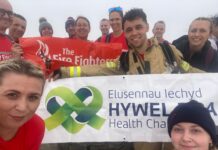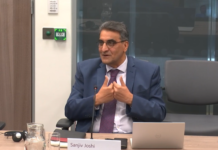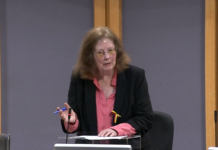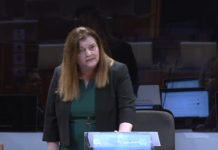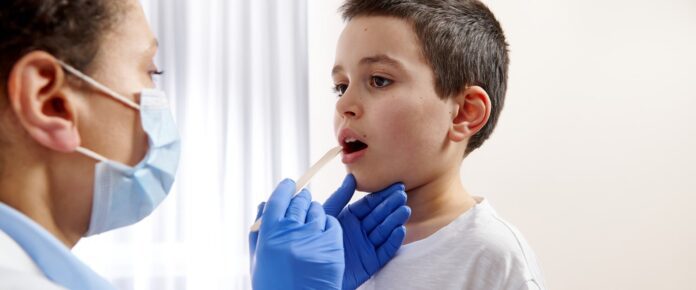Children’s doctors in Wales upskill to help parents and children face growing poverty and inequalities, with 60% of paediatricians saying that the cost-of-living crisis is directly impacting children’s health
The Royal College of Paediatrics and Child Health (RCPCH) calls on the Welsh government to take vital action to tackle growing child inequalities and poverty across the nation, including publishing a revised strategy to reduce child poverty and expanding the Children and Young People Plan so that future iterations form a child health and wellbeing strategy that will address health inequalities and the impact of child poverty.
· The membership body is publishing a range of resources to help upskill paediatricians to provide care for families impacted by poverty and health inequalities
· This comes as survey data of nearly 500 UK paediatricians shows 60% believe the cost-of-living crisis is already impacting the health and wellbeing of children and young people
The Royal College of Paediatrics and Child Health (RCPCH) is today publishing a bank of resources that will help paediatricians to support families who come to their clinics and are suffering from the impact of poverty, low wealth, and inequalities.
Health inequalities are the avoidable, unfair, and systematic differences in health outcomes between different groups of babies, children, and young people. Evidence shows that child poverty is a key driving factor in health inequalities. Lifelong health inequalities take root in childhood and impact a person’s future. Data consistently show that poverty and inequality affect their education, housing, and social environment and in turn their health outcomes.
Currently, health inequalities cost the Welsh NHS approximately £322 million every year. Wales now has the worst child poverty rate of all the UK nations at 31%, with child poverty increasing in 20 of 22 local authorities over the past 5 years. In a recent survey, 60% of paediatricians said they believe the rising cost of living is already having a direct impact on health and wellbeing of children and their families. The results showed that paediatricians are seeing rising mental health concerns in patients and their families, increased poor nutrition and a rise in families being unable to attend medical appointments as transport costs rise.
When asked about the cost-of-living crisis, paediatricians told us:
“Families cannot afford to get transport to hospital – we have had to resort to use of the ambulance service in urgent settings.”
“I have seen families with infants who informed me that they had no heating due high cost.”
“It has limited some parent’s ability to visit their critically ill children in ICU because they have to work. This is heart-breaking and wrong. These parents and children deserve better support.”
“I am an allergy specialist, many of my patients are in poor quality damp housing which impacts their asthma/allergic rhinitis directly. Families who use food banks have difficulty in getting safe foods for children and young people with multiple food allergies – so parents end up restricting their own foods to buy food for their children.’
“When the sibling of a child with complex neurological disorder says he doesn’t want to go home, because ‘hospital is amazing’ your heart breaks. For this young boy home is a hotel room, with no toys, no outdoor, limited food supplies, and no other children to play with… this is not the childhood we would want for any child.”
“Parents are fearful of this winter. One parent said to me the other day, “this winter, we will be ruined.”
Dr David Tuthill, RCPCH Officer for Wales said:
The current levels of child poverty in Wales are unacceptable. As we approach a difficult winter I worry deeply for these children and their families. I believe that the toolkit we are publishing today will allow paediatricians to tackle poverty and health inequalities when and where they can, but more support is needed in order to protect vulnerable children and their futures. Paediatricians can not achieve this alone.
It is time for the Welsh Government to acknowledge our exceptionally high child poverty rates, review existing programmes and publish a revised Strategy to reduce child poverty. The Strategy should provide national targets to reduce child poverty rates and specific health inequality targets for key areas of child health, with clear accountability across Government.
Dr Camilla Kingdon, RCPCH President said:
For paediatricians, child health inequalities are impossible to miss. It is in the asthma that won’t go away from poor quality housing, the destructive-quality or lack of food, poor teeth or low birth weight. Whole families are impacted, and we are often asked for advice or letters on housing, debt, or other local services, and of course support for rising mental health concerns. These issues impact children their entire lives and further entrench unacceptable inequalities. Action is needed urgently.
We are calling on the new PM to ensure children are at the centre of all upcoming policy making. As the government sets to tackle the impact of COVID-19 and the costs of living crisis – which are clearly exacerbating these issues – they must concurrently shift the dial on child health inequalities.
In the meantime, paediatricians are doing what they can to upskill and help tackle child inequalities. The resources we are launching today are designed to help paediatricians have the right conversations with patients and families and help them navigate the political and economic environment, and work with local services to make improvements. This is something our members routinely call for. I am exceptionally proud of my profession and of my peers for their unyielding dedication to child health and wellbeing.
The RCPCH will be providing their members with:
· Communication tools on how to talk to parents about poverty in clinic
· A range of factors to consider if interested in starting a quality improvement project to improve NHS services that reduce child health inequalities
· Tips on how to influence local policy to make change – emphasising evidence and data as a powerful tool in advocacy
The products were created in collaboration with paediatricians and tested out by children, young people, and their families to make sure they resonated, provided practical assistance, and crucially were in the right language for them. The children and young people have produced a range of fantastic artwork outlining what health inequalities mean to them.
Help keep news FREE for our readers
Supporting your local community newspaper/online news outlet is crucial now more than ever. If you believe in independent journalism, then consider making a valuable contribution by making a one-time or monthly donation. We operate in rural areas where providing unbiased news can be challenging. Read More About Supporting The West Wales Chronicle











